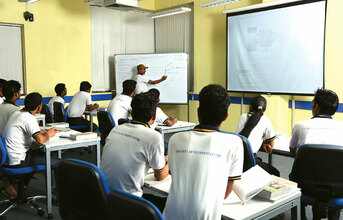
Be it any business in any sector, its people are the one who drive it. And hence they are the significant aspect of it. "The most important M of the five Ms (man, machine, method, material, and money) necessary in an organisation is undoubtedly ‘The Man'. All other Ms can be acquired, but human power is something that cannot be procured, it must be nurtured and developed. Companies can get their competitive edge from employees who are energised and empowered, who are capable and appropriately skilled. The importance of skilled manpower in manufacturing, therefore, cannot be overemphasized," opines Sunjay Kapur, CEO, Sona Group.
Seconding the same Rahil Rangwala, Director, India, Family Economic Stability, Michael & Susan Dell Foundation says, "Skilled employees are the cornerstone of a successful business. They directly influence productivity and growth. Compared to an unskilled workforce, skilled labour makes a definite difference in the quality of the product and thereby, reliability in the business. Being equipped with the right skills translates to efficiently performing the job at hand.
In spite of having world's largest youth population in country, finding correct labour has become a key issue for the industry. Moreover, the demand for the ‘correct' labour is increasing day by day. Speaking on the same, Hussain Shariyarr, Sr. Vice President - Operations, Godrej Appliances highlights, "There is no dearth of manpower in India. We have about three percent skilled workforce in the country and projections are to double these numbers by 2022, but have these projections considered the right skills. The manufacturing industry requires consistent influx of labour who are trained not only for the basics like fitting, wiring and welding but also have gone through advanced training and are able to work in tandem with programmable logic controllers, robots, pneumatics, hydraulics, etc. We also cannot overlook at the fact that the skillset requirement in itself is evolving dramatically. Customer preferences and buying behaviour is driving the change in the skillset required on the shopfloor, sales and service market of every industry. We will have to break this paradox, understand the skills of future to get ahead of the curve," says Hussain Shariyarr, Sr. Vice President - Operations, Godrej Appliances.
This is especially true when Indian manufacturing companies are going global and are now competing in the world arena. "In order to succeed it has to deliver the top quality product at the lowest cost. A highly productive cost efficient labour force is a minimum requirement. Today, our education system is not fully equipped to prepare the young workforce for employment. There exists a huge gap in what the system is generating and what the manufacturing industry needs. Our education system has to gear itself to support nation's economic agenda by creating jobready and employable work force," highlights Abhishek Jain, Whole Time Director, PPAP Automotive Ltd.
(Continued on next page)



























